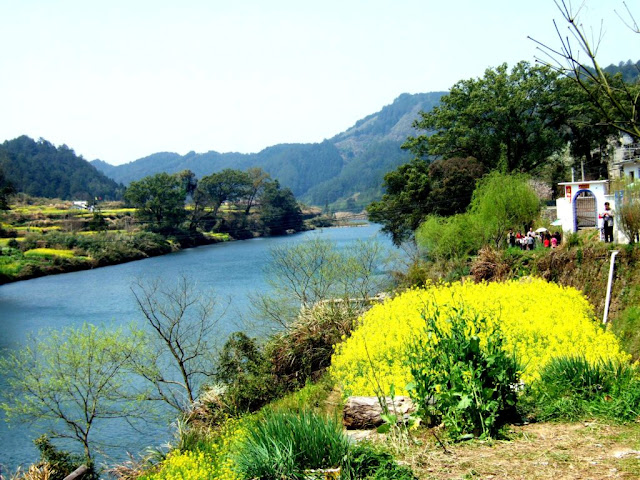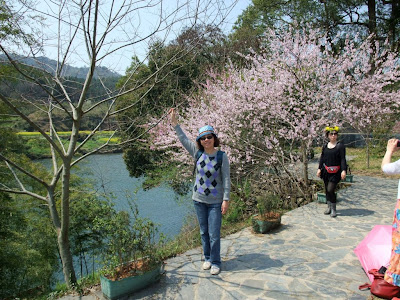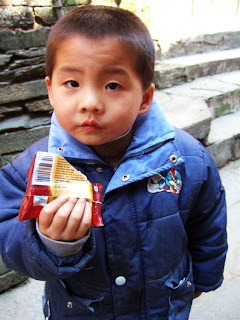
All villages at Wuyuan (婺源)remain almost unchanged over last century and Wangkou is also one of them. Majority of the villages are under one management. A ticket of rmb180.00 allows you to visit all villages otherwise you have to pay an admission fee of rmb 60.00 each village.


Hundreds and hundreds years ago, this beautiful scenic site was a transportation dock.


The place is well known for its natural scenery as well as its glorious past.


Wangkou was once a distribution center and transportation port in the region.




There were several such water mills at Wangkou, which were used to pestle rice by civilians in olden days. It was called Shang-Jiaolong water mill as mill cart was moved by the power of pouring water from upside. Rice after being milled was transported to every quarters of the state.


The village was protected by natural green screen of Xiang Shan and surrounded by the blue river of YongChuang.


Every where turned into a picturesque landscaping painting




The best season to visit the village is between end March to early April when the land is carpeted with yellow rape seed flower.











I was so comfortable here!





Old dwellings



Wuyuan in ancient time was governed by Anhui. Merchants from this area spread throughout China Continent 500 years ago forging trade relations with dealers from east to west.


Wangkou was once a prosperous port. The casino was the place where traders and boat sailors from all over the places gathered and met.


Narrow pathways between traditional houses.





Pangdu Barrage located at east side of the village, covers a distance of 1500 meters at the junction where two streams meet.


Most of the houses were of Huizhou distinctive architectural style. During Ming and Qing Dynasty, the place was a merchant society that held power in South Anhui.



Sparkling rivers and slow tranquil pace of rural life conjured up the images of ancient China. Bamboo rafts are transportation and floating down the rivers on the bamboo rafts was an amusement.



Wonderful natural scenery while drifting down the waterway by bamboo rafts.


Rafts hiring corner.


Children from Wangkou




Do all these happy little girls of Wangkou ever know that in ancient days, poor parents faced great difficulties to have their daughters married out. For a young girl to find a good family to marry, parent required large sum of money as in order for the daughter to be treated good by husband and in-laws and have position in their family, she had to marry with five dowries: a house title, a coffin, five strong male mates (to dig well), barrels of rice wine and a pair of scissors.




Peaceful and Contented !




Ancestor Hall for family name of "YU" is true treasure house. It was built with Qing structure on a land area of 1000 sq. meter.


Materials for the building were mainly stone or wood, with beautiful carvings and designs.





The wooden round feature in front of the main door was called "Men-dang" which should be in a pair and balance with the above top part of the door. It used to apply in marriage couple of equivalent standard and background.






In the mind of Hui's people, ancestor hall was always been treated as a holy place, where they respect, pray and in memory of their ancestors or sometimes acts as meeting venue or court.



Exquisite wood carvings at the pillars and beams.


There are two huge cinnamon trees in one of the courtyards, one at the age of thousand years and one is more than hundreds of years . The couple with us were from Shongtong and they were back-packers traveling across the whole area of Wuyuan. Chinese people travel a lot and they enjoyed life nowadays.



Chinese calligraphy in blue was the actual handwriting of Zhuxi, the top scholars from Song Dynasty. The word "xiao" means respect and love your parents, treat them good and do not make them sad or in difficulty. This is the moral Confucian Teaching emphasizes most. The fresh bamboo shoot are spring season food here.



No comments:
Post a Comment